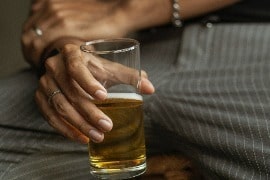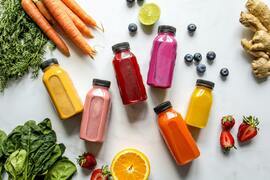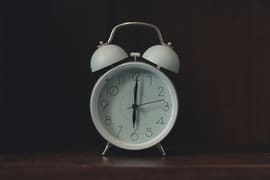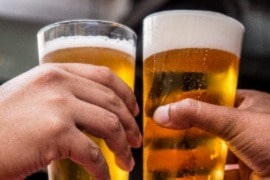The following provides an overview of what to know about beer and kidney stones, and answers the question “does beer help kidney stones.”
Kidney stones can be painful and can lead a person to seek home remedies, including beer consumption. The following provides an overview of what to know about beer and kidney stones.
Article at a Glance:
- You can prevent kidney stones by drinking plenty of water and maintaining a healthy diet.
- Alcohol is linked to kidney stones made from uric acid.
- Beer has been linked to protection from kidney stones in a few small studies; however, beer consumption is not recommended to prevent kidney stones.
What Are Kidney Stones?
Kidney stones are crystal deposits that collect in the kidneys. Most commonly, they are made from calcium or uric acid. They can be of various sizes, and passing kidney stones can be painful.
Does Alcohol Cause Kidney Stones?
No direct link between alcohol and kidney stones has been proven. However, alcohol can cause dehydration, which is linked to kidney stone formation. For this reason, alcohol use is not recommended if you have kidney stones or are trying to prevent them.
In addition, there are other factors to consider:
- Dehydration: If you drink, particularly in excess, it can cause dehydration, which is linked to kidney stone formation.
- Weight gain: Drinking excessively means you are getting a lot of empty calories, which can cause weight gain. Being overweight or obese are also risk factors for kidney stones.
- Uric acid: Alcohol like beer contains something called purines, which are the building blocks of uric acid. Purinescan lead to the formation of uric acid kidney stones, and beer could exacerbate problems that you have with high purine levels.
Kidney stones and beer might not be directly associated with one another in a causal way, but there are a lot of reasons to watch your alcohol consumption if you’re concerned about kidney stones.
What Causes Kidney Stones?
There are many different reasons a person might get kidney stones throughout their life, ranging from genetics to lifestyle.
- Genetics can cause kidney stones, which are often made from cystine.
- Acidic urine can cause kidney stones, often made from uric acid.
- Diet can be linked to kidney stones, often formed from calcium oxalate.
- Infections can cause kidney stones, often formed from struvite.
- Dehydration can cause kidney stones by making it harder to flush out crystals in your urine.
Does Beer Help Kidney Stones?
A few small studies have shown that drinking beer in moderation may protect against kidney stones. The reason for this is unclear but may be due to the fact that beer is a diuretic, meaning it helps you urinate. Urination, in turn, can help flush small stones from your kidneys before they get bigger.
Importantly, people may have varying definitions of what drinking in moderation means. For this reason, it is important to be aware of what moderate drinking truly is. Further, you should never start drinking as a way to avoid kidney stones.
When a medical professional talks about drinking in moderation, they usually mean no more than one drink a day for women and two for men. A serving size would be around 12 ounces of beer or five ounces of wine.
While drinking plenty of fluids when you have kidney stones is important, beer might not be the best choice. This is because beer dehydrates you. When you’re dehydrated, it can actually cause you to retain water and urinate less, which can make it harder to pass existing stones.
How To Prevent Alcohol-Related Kidney Stones
The best way to prevent alcohol-related kidney stones is to drink in moderation, meaning no more than one drink a day for women and two drinks a day for men. In addition, it is important to keep well-hydrated and avoid dehydration. That said, if your doctor tells you that your kidney stones are formed from uric acid, you may need to avoid alcohol entirely.
The Role of the Kidneys
Kidneys filter toxins and harmful chemicals out of your blood, which makes up about 25% of the fluid in your body. Your blood is located in your blood vessels, and the amount of blood can change slightly throughout the day. Since your kidneys are a literal filter for blood, the amount of fluid and how fast it is moving through your bloodstream impacts how well your kidneys work.
Each person is typically born with two kidneys, and they have the same set of functions. In general, most people can survive with only one kidney. However, some people may need to adjust their medication doses or eat special diets, but this is not common. Other than filter toxins, your kidneys also help regulate blood pressure, and the attached adrenal glands control hormone levels.
Summing Up — Beer For Kidney Stones
Drinking beer in moderation when you have kidney stones may be helpful. However, excessive drinking can be harmful and may cause both dehydration as well as the formation of uric-acid kidney stones.
Articles Related to Alcoholism

Alcohol detox isn’t easy and not everyone can do it on their own. That is why alcohol detox and alcohol withdrawal treatment is administered by medical professionals.

Alcoholism takes many forms, and the stereotype doesn’t always hold true. So when do a few drinks with friends become a full-blown alcohol addiction? How do you know if you are an alcoholic?

While cirrhosis scars from excessive drinking are irreversible, quitting alcohol and leading a healthier lifestyle can help your liver heal from alcohol-related liver disease.

When detoxing, hydration is key. However, certain food groups also have benefits when it comes to helping with the discomfort of withdrawal symptoms and detoxification.

Detox from alcohol can begin within hours. Typically, alcohol withdrawal symptoms happen for heavier drinkers. Alcohol withdrawal can begin within hours of ending a drinking session.

Daily drinking can have serious consequences for a person’s health, both in the short- and long-term. Many of the effects of drinking every day can be reversed through early intervention.


Ferraro, Pietro; Taylor, Eric; Curhan, Gary. “Soda and Other Beverages and the Risk of Kidney Stones.” Clinical Journal of the American Society of Nephrology, May 15, 2013. Accessed May 10, 2021.
“Physiology Figure: Body Fluid Compart[…]�� PhysiologyWeb.” 2015. Accessed May 10, 2021.
U.S. National Library of Medicine. “Kidney stones – self-care.” May 4, 2021. Accessed May 10, 2021.
Jones, Patrick; Sulaiman, Sadaf Karim; Gamage, Kithmini N.; et al. “Do Lifestyle Factors Including Smoking, […] a Systematic Review.” Journal of Endourology, January 2021. Accessed May 10, 2021.
Poore, William; Boyd, Carter J.; Singh, Nikhi P.; et al. “Obesity and Its Impact on Kidney Stone Formation,” Reviews in Urology, 2020. Accessed May 10, 2021.
Centers for Disease Control and Prevention. “Dietary Guidelines for Alcohol.” December 29, 2020. Accessed May 10, 2021.
The Recovery Village aims to improve the quality of life for people struggling with substance use or mental health disorder with fact-based content about the nature of behavioral health conditions, treatment options and their related outcomes. We publish material that is researched, cited, edited and reviewed by licensed medical professionals. The information we provide is not intended to be a substitute for professional medical advice, diagnosis or treatment. It should not be used in place of the advice of your physician or other qualified healthcare providers.